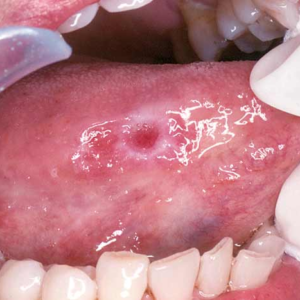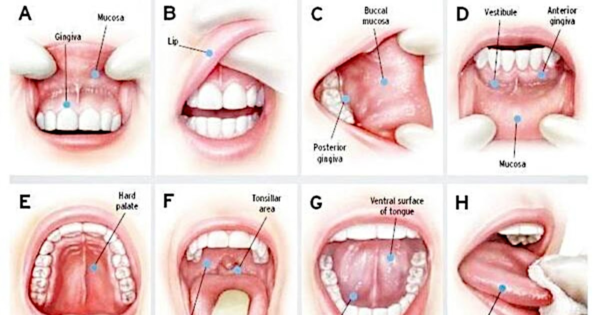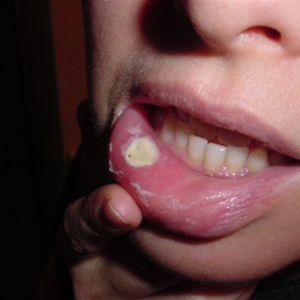 Mouth CancerAction UK Is Focused; On saving lives through prevention, early detection, promotion, and good health engaging people with the issues surrounding mouth Cancer!
Mouth CancerAction UK Is Focused; On saving lives through prevention, early detection, promotion, and good health engaging people with the issues surrounding mouth Cancer!The early warning signs, to go to the doctor, dentist, and hospital to have early treatment. All can make a difference in improving education and ultimately saving Lives!
We have put together 21 facts you really need to know and may shock you about mouth cancer, how many do you know?
1 – In the UK, one person is told they have mouth cancer every 77 minutes.
2 – This is almost 7 thousand people every year.
3 – Mouth cancer claims more lives than testicular and cervical cancer combined.
4 – Mouth cancer takes more lives every year than road traffic accidents on Britain’s roads.
5 – Mouth cancer is diagnosed in more than twice as many men than women but there are more cases in women than ever before.
6 – Shockingly, one in ten have never heard of mouth cancer.
7 – Cases of mouth cancer have increased by a third in the last decade alone.
8 – Survival rates based on a late diagnosis are as little as 50% but chances of survival drastically increase with an early diagnosis to 90%.
9 – Scotland has more cases per capita than in England, Northern Ireland or Wales.
10 – Mouth cancer is one of very few cancers which incidences are actually predicted to increase in the future.
11 – Smoking is the leading cause of mouth cancer.
12 – But HPV is predicted to overtake it as the leading cause of mouth cancer in the next decade.
13 – HPV is predominantly transmitted through oral sex.
14 – Extending the HPV vaccine to include boys of a school age could save thousands of lives.
15 – Excessive use of alcohol is linked to more than a third of mouth cancer cases in men and a fifth in women.
16 – Heavy drinkers and smokers are up to 35 times more at risk.
17 – Mouth cancer can often be spotted in its early stages by your dentist during a thorough mouth examination.
18 – As part of every check-up a dentist is required to carry out a visual examination to look for the early signs of mouth cancer.
19 – Mouth cancer can affect anyone.
20 – Signs and symptoms of mouth cancer include: ulcers which do not heal within three weeks, red or white patches and any unusual lumps or swellings.
21 – If in doubt get checked out by your dentist or doctor as soon as possible.
With your help Mouth Cancer Action UK has the perfect opportunity to fight back against mouth cancer, we want everyone to be mouth aware and be on the lookout for the signs and symptoms of mouth cancer.
The importance of “Mouth Cancer Action UK“, more than 7,800 people were diagnosed with mouth cancer last year and globally there are in excess of 300,000 new cases every year.
The number of people being diagnosed with mouth cancer has grown by around a third in the last decade and remains one of very few cancers which are predicted to increase further in the coming years.
Although there are risk factors heavily linked to the disease, mouth cancer can affect anyone – that’s why it’s so important that we all know what to look out for. The campaign is all about taking action and promoting the messages:
- Don’t leave a mouth ulcer unattended for more than three weeks.
- Don’t ignore any unusual lumps or swellings or red and white patches in your mouth.
- Early detection could save your life. If you notice any changes in your mouth speak to a dentist or doctor immediately.
Who is affected by mouth cancer?
Mouth cancer is an uncommon type of cancer, accounting for one in 50 of all cancer cases.
In the UK, just over 6,767 new cases of mouth cancer were diagnosed in 2011 (the latest reliable data).
Most cases of mouth cancer first develop in older adults who are between 50-74 years of age.
Mouth cancer can occur in younger adults, but it’s thought that HPV infection may be responsible for the majority of cases that occur in younger people.
Mouth cancer is more common in men than in women. This is thought to be due to the fact that, on average, men drink more alcohol than women.
Treating mouth cancer
 There are three main treatment options for mouth cancer. They are:
There are three main treatment options for mouth cancer. They are:
- surgery – where the cancerous cells are surgically removed and, in some cases, some of the surrounding tissue
- chemotherapy – where powerful medications are used to kill cancerous cells
- radiotherapy – where high energy X-rays are used to kill cancerous cells
These treatments are often used in combination. For example, a course of radiotherapy and chemotherapy may be given after surgery to help prevent the cancer returning.
Complications of mouth cancer
Both surgery and radiotherapy can make speaking and swallowing difficult (dysphagia).
Dysphagia can be a potentially serious problem. If small pieces of food enter your airways and become lodged in your lungs, it could trigger a chest infection, known as aspiration pneumonia.
Read more about the complications of mouth cancer
Reducing the risk
The three most effective ways to prevent mouth cancer from developing – or prevent it reocurring after successful treatment – are:
- not smoking
- keeping to the recommended weekly limits for alcohol consumption (21 units for men and 14 units for women (read more about alcohol units)
- eating a ‘Mediterranean-style diet’, with plenty of fresh vegetables (particularly tomatoes), citrus fruits, olive oil and fish (read more about healthy eating)
It’s also important that you have regular dental check-ups because dentists can often spot the early stages of mouth cancer.
Outlook
If mouth cancer is diagnosed early, a complete cure is often possible using a combination of radiotherapy, chemotherapy and surgery.
The outlook for mouth cancer can vary depending on which part of the mouth is affected and whether it has spread from the mouth into surrounding tissue. The outlook is much better if the cancer is diagnosed early.
Overall, an estimated 40% of people with cancer affecting the mouth and pharynx will live at least five years after their diagnosis and many people live much longer. However, the outlook is better for cancer affecting certain areas of the mouth, such as the lip, tongue or oral cavity.
The leading causes of mouth cancer in the UK are tobacco and alcohol
 Both tobacco and alcohol are carcinogenic, which means they contain chemicals that can damage the DNA in cells and lead to cancer.
Both tobacco and alcohol are carcinogenic, which means they contain chemicals that can damage the DNA in cells and lead to cancer.
If you drink alcohol or you smoke, this increases your risk of mouth cancer. If you both smoke and drink alcohol, this further increases your risk.
It’s not known exactly what triggers the DNA changes that lead to mouth cancer, or why only a small number of people develop it.
Other risk factors
Other risk factors for mouth cancer include:
- chewing tobacco or other smokeless tobacco products
- chewing betel nuts with or without added tobacco
- an unhealthy diet
- the human papillomavirus (HPV)
Smokeless tobacco
Smokeless tobacco products include:
- chewing tobacco
- snuff – powdered tobacco designed to be snorted
Smokeless tobacco products are not harmless and may increase your risk of mouth cancer, as well as other cancers, such as liver cancer, pancreatic cancer and oesophageal cancer.
Betel nuts
 Betel nuts are mildly addictive seeds from the betel palm tree. They’re widely used in many south Asian communities, such as people of Indian, Pakistani, Bangladeshi and Sri Lankan origin.
Betel nuts are mildly addictive seeds from the betel palm tree. They’re widely used in many south Asian communities, such as people of Indian, Pakistani, Bangladeshi and Sri Lankan origin.
Betel nuts have a stimulant effect similar to coffee. They also have a carcinogenic effect, which means they can increase the risk of mouth cancer. This risk is increased further by chewing betel nuts with added tobacco, as many people in south Asia do.
Because of the tradition of chewing betel nuts, rates of mouth cancer are much higher in people from the Indian, Pakistani, Bangladeshi and Sri Lankan community than in the British population at large.
Diet
There’s evidence that an unhealthy diet can increase your risk of getting some types of mouth cancer.
Eating a healthy, balanced diet that includes plenty of fruits and vegetables is thought to reduce your risk of developing mouth cancer.
Human papillomavirus (HPV)
The human papilloma virus (HPV) is a group of viruses that affect the skin and moist membranes inside the body, such as those in the cervix, anus, mouth and throat.
You can get an HPV infection by having sexual contact with a person who’s already infected. You do not have to have penetrative sex, just skin-to-skin contact.
There’s evidence that in rare cases, certain types of HPV can cause abnormal tissue growth inside the mouth, triggering mouth cancer.
Oral hygiene
As cancer is sometimes linked with long-standing wounds, there’s a small chance that jagged, broken teeth, which cause persistent ulcers or wounds on the tongue, can increase the chance of mouth cancer developing there.
It’s therefore very important to do everything you can to keep your mouth and teeth healthy.
Find out more about how to take care of your teeth and gums.
How mouth cancer spreads
There are 2 ways mouth cancer can spread:
- directly, by spreading to nearby tissue, such as surrounding skin or to the back of the jaw
- through the lymphatic system, which is the network of vessels and glands found throughout your body which produces special cells that are needed by your immune system to fight infection
Mouth cancer that spreads to another part of the body is known as metastatic oral cancer, which are often called secondaries.
The lymph glands in the neck are usually the first place where mouth cancer forms secondaries.
Dentists look for early signs of mouth cancer during regular check-up appointments, but it’s also important for you to recognise the warning signals so you can bring them to the attention of your dentist right away.
Signs and Symptoms

Mouth cancer can occur anywhere in the mouth, including the lips, tongue and throat, as well as the salivary glands, pharynx, larynx and sinuses. And because early detection is crucial in overcoming this disease, you’ll want to visit your doctor immediately if any of the following symptoms persist for more than two weeks:
- Sores, swellings, lumps or thick patches anywhere in or around your mouth or throat
- Areas of red or white lesions in your mouth or lips
- The feeling of a lump or object stuck in your throat
- Swellings that make wearing dentures uncomfortable
- Numbness, pain or tenderness anywhere in your mouth, including your tongue
- Pain in one of your ears but without any loss of hearing
- Trouble moving your jaw or tongue, or problems with chewing, swallowing or speaking
- Loose teeth with no apparent dental cause
- Lingering sore throat or hoarseness
How Cancer in the Mouth Occurs
Although the exact cause of oral cancer is unclear, there are certain lifestyle factors that can put someone at risk for this disease. Tobacco of any kind – cigarettes, cigars, pipes and smokeless tobacco – increase your risk for oral cancer. In fact, reports have shown 90 percent of those with oral cancer consume tobacco. Heavy use of alcohol also increases a person’s chances of developing oral cancer, and your risk is even higher when using both tobacco and alcohol.
In addition to tobacco and alcohol, age and eating habits can influence your risk as well. Most oral cancers occur in people over the age of 40, and a diet that is deficient in fruits and vegetables can make it easier to contract. Keep in mind sun exposure can cause cancer on the lips. More recently, there has been a rise in a subset of oral cancers associated with the sexually transmitted human papillomavirus (HPV 16).
Oral Cancer Screening and Treatment
Oral cancer examinations by your dentist are quick, painless and crucial to detecting it in its early stages. During a routine check-up of your teeth and gums, your dentist also visually checks your lips and face for signs of spreading beyond your mouth. He or she may also palpate the neck and jaw area and examine both the top and underside of your tongue. These oral cancer screenings should be done every six months.
A dentist who suspects cancer will recommend a biopsy of the area. With a positive diagnosis, surgery may be needed to treat the affected area, and often this surgery is followed by radiation and chemotherapy treatment.
Your Best Option
When in doubt, seek prevention! You should already practice daily oral hygiene to prevent tooth decay and gum disease: brushing regularly with a fluoride toothpaste, flossing daily and limiting sweets. But by regulating certain lifestyle choices – smoking, alcohol use and sun exposure, for example – you can significantly lower your risk of developing oral cancer.
Ultimately, if you know what to look for and see your dentist for regular screenings, early signs of mouth cancer can be identified and taken care of before they become a serious problem.
Resources
http://alastairfry.com/
https://www.macmillan.org.uk/information-and-support/head-and-neck-cancers/mouth-cancer
https://www.nhs.uk/conditions/mouth-cancer/
https://www.mouthcancerfoundation.org
